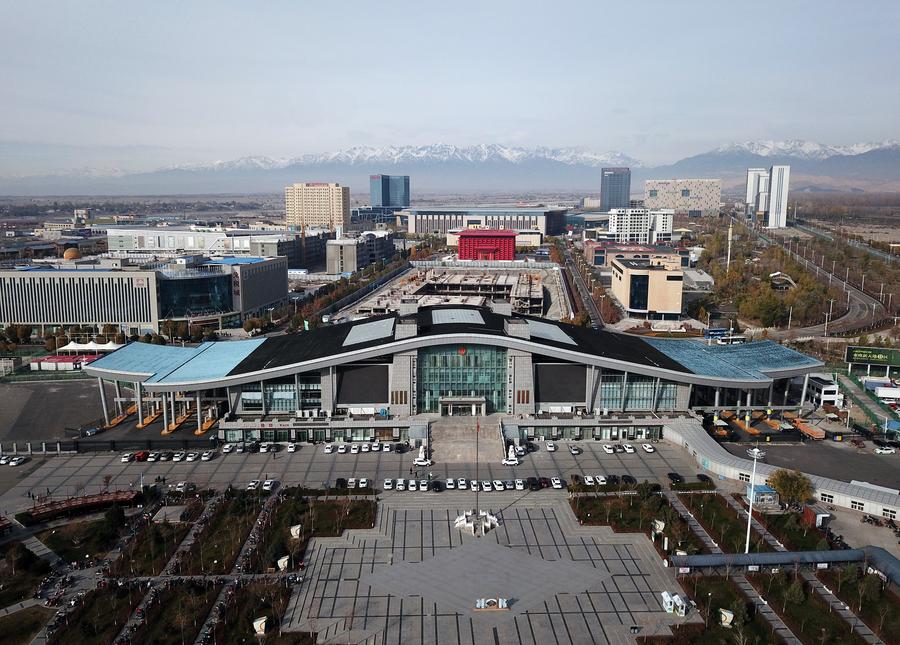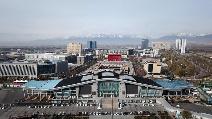
This aerial photo taken on Nov. 8, 2023 shows a view of the Horgos International Border Cooperation Center on the China-Kazakhstan border in Horgos, northwest China's Xinjiang Uygur Autonomous Region. (Xinhua/Li Xin)
URUMQI, Jan. 28 (Xinhua) -- The Horgos area of the Pilot Free Trade Zone (FTZ) in northwest China's Xinjiang Uygur Autonomous Region on Saturday announced the official operation of two motorcycle production lines targeting the Central Asian market, after a batch of motorcycles rolled off the lines.
The production lines belong to Horgos Kingold New Energy Technology Co., Ltd, with the daily capacity of each production line reaching up to 500 motorcycles.
The company's first order of 1,200 motorcycles will be exported to Kazakhstan in February, and it has received pre-orders for more than 20,000 motorcycles.
With an investment of 1.5 billion yuan (about 211.27 million U.S. dollars), the motorcycle production project primarily focuses on new energy photovoltaic motor tricycles, two-wheeled electric vehicles and fuel motorcycles. The project is planned to be constructed in two phases, and the two production lines that have been put into operation are part of the first phase of the project.
The company plans to introduce advantageous resources in the region such as steel, aluminum and electricity, into its motorcycle production lines, with a goal that 60 percent of the component parts of a motorcycle are made in Xinjiang.
"It will significantly reduce costs compared to other provinces and cities in the country, and enhance our competitiveness in the market," said Yuan Zhiyou, chairman of the company.
The Xinjiang Pilot Free Trade Zone (FTZ) is the first in China's northwestern border regions. Covering approximately 180 square km, the pilot FTZ comprises the iconic areas of Kashgar prefecture, Urumqi and Horgos, and is expected to greatly contribute to Xinjiang's integration into both domestic and international markets as well as boost local socioeconomic development.




 A single purchase
A single purchase









